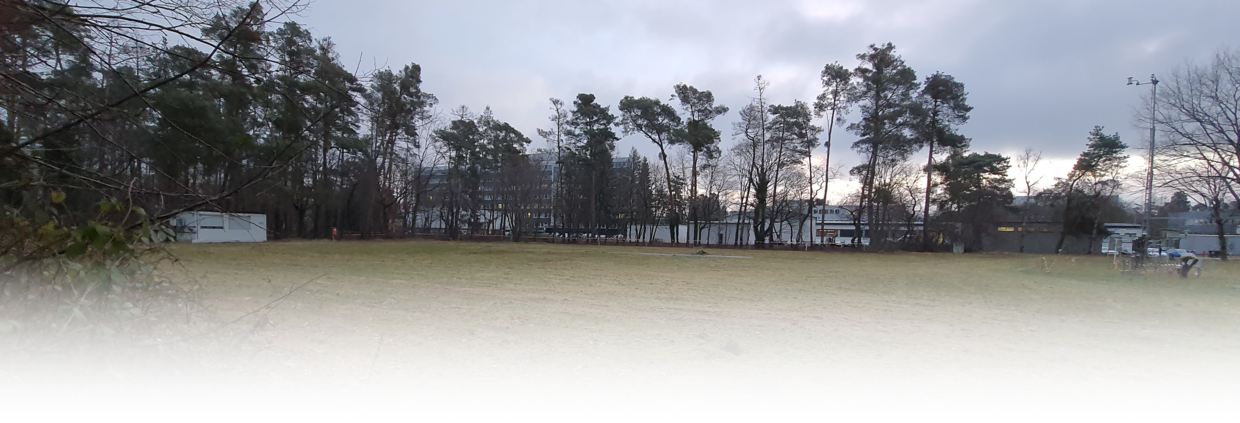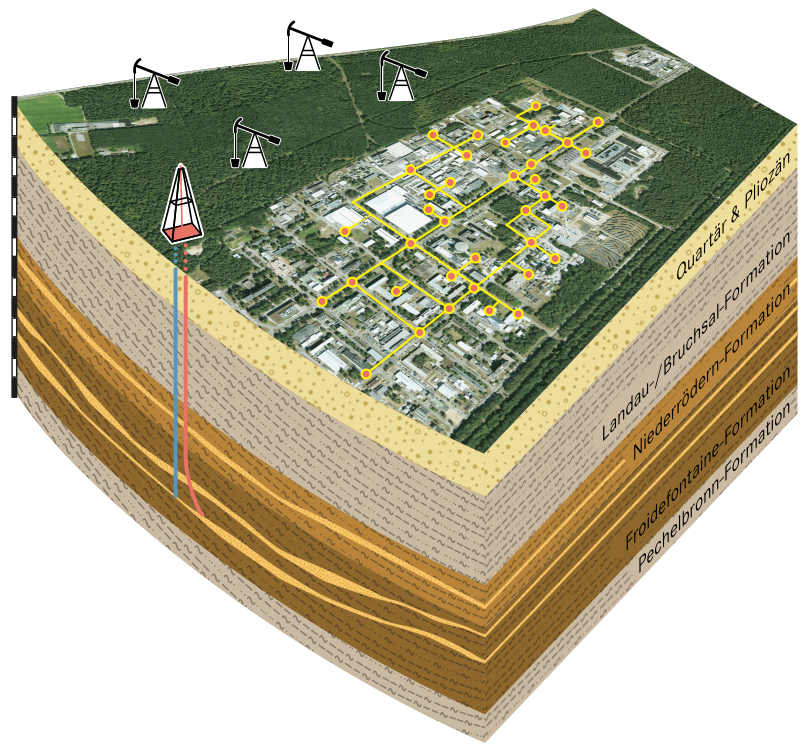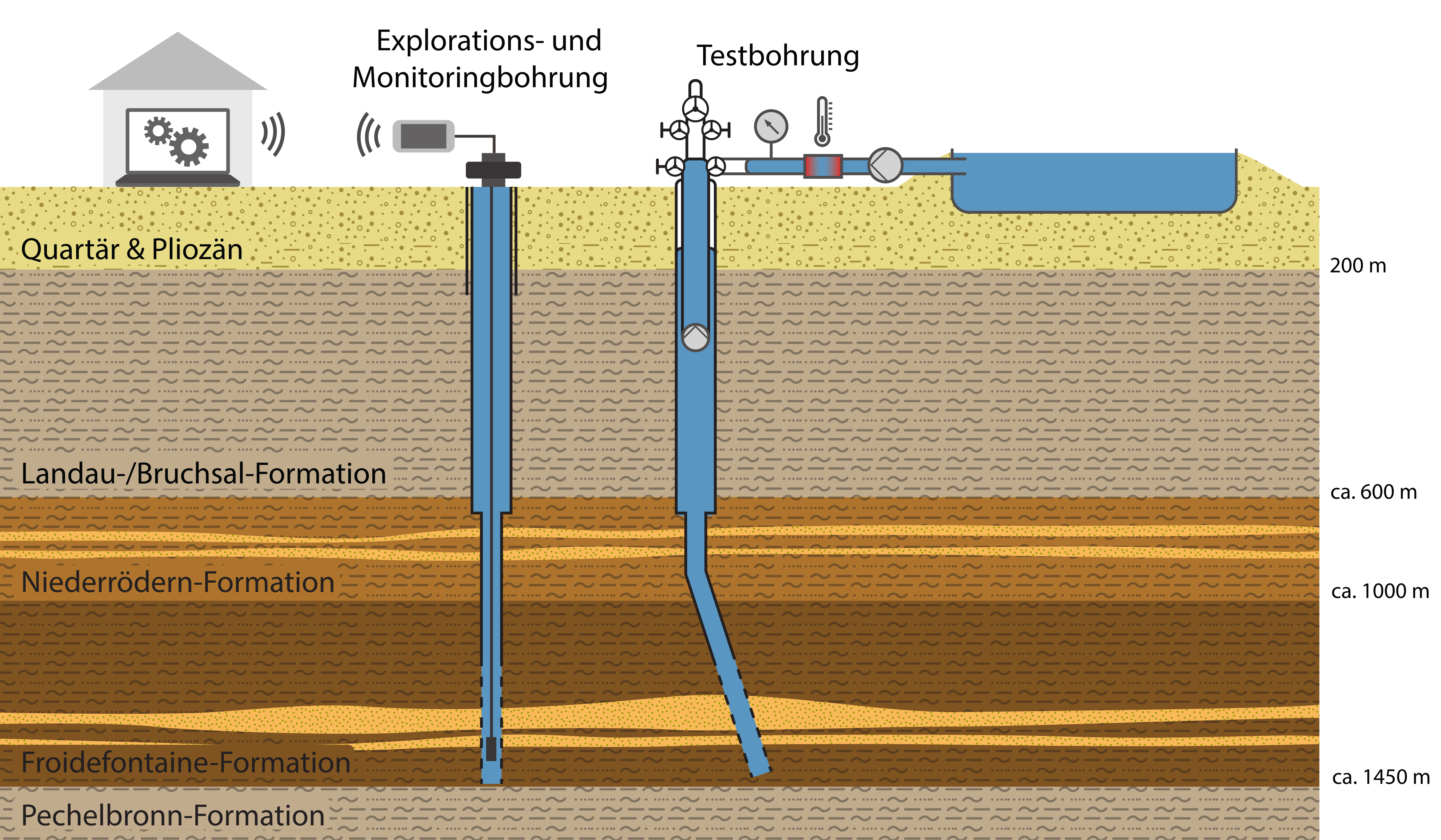DeepStor

The DeepStor research infrastructure
DeepStor serves to develop high-temperature thermal energy storage (HT-ATES) in the deep subsurface. As a demonstrator, the infrastructure serves to validate the technical feasibility of the new storage technology. DeepStor enables loading and unloading experiments of a deep storage tank and the investigation of the associated coupled thermal, hydraulic, chemical and mechanical processes in the thermal water cycle. In DeepStor as a scientific experiment, important questions are examined in detail.

In an extensive accompanying scientific program, topics such as innovative drilling technologies, two-phase flow, water-rock interactions, use of nano-tracers and induced seismicity can be investigated in addition to the main focus on heat storage.
The scientific infrastructure is part of an overall concept for a CO2-neutral heat supply at the KIT North Campus based on geothermal technologies. Once the feasibility has been demonstrated with DeepStor - stage one, we plan to integrate the HT-ATES for research purposes into the regular operation of the heat supply with the existing district heating network on the campus. Coupling such a storage facility with heat production from deep geothermal energy, together with other generation, conversion and storage technologies, can support the regional heat transition.
Vision
HT-ATES could play an important role in a future renewable energy system. These prerequisites are technical feasibility, economic viability, and public acceptance. DeepStor will investigate this potential by addressing the water- bearing marginal areas of exploited hydrocarbon reservoirs. Such areas could be particularly suitable for this application: Formerly exploited hydrocarbon reservoirs provide both the necessary reservoir conditions and valuable information about the subsurface properties.
Exploration and long-term monitoring
DeepStor consists of two wells and a basin. The exploration well (DeepStor-1) allows investigations in three calcareous sandstone horizons between 800 and 1300 m depth, which are possible storage horizons. The planned test well (DeepStor-2) is designed as a long-term observation well and will be used for production and reinjection. The deep groundwater produced during the test phase will be temporarily stored in a basin and reinjected at a specific temperature. Tests will be carried out with the help of a heat exchanger and a mobile heating station.
Involvement of citizens
GECKO is an inter- and transdisciplinary joint project between KIT and Öko-Institut e.V.. In a co-design process, a concept for the use of geothermal energy for a climate-neutral heat supply at the KIT North Campus was developed together with citizens and other stakeholders. The results of this project are incorporated into the DeepStor concept. In the future, citizens will be invited to collect data themselves within the framework of a citizen science project and thus gain a direct insight into research.
Facts and figures
- 2 boreholes, depth of approx. 1300 meters
- Tests of loading and unloading of the deep reservoir
- Reinjection temperature > 120°C
- Utilization of former oil fields for the energy transition

| Contact: | |
|
Scientific Management: Prof. Dr. Thomas Kohl |
Technical Management: Prof. Dr. Eva Schill |
